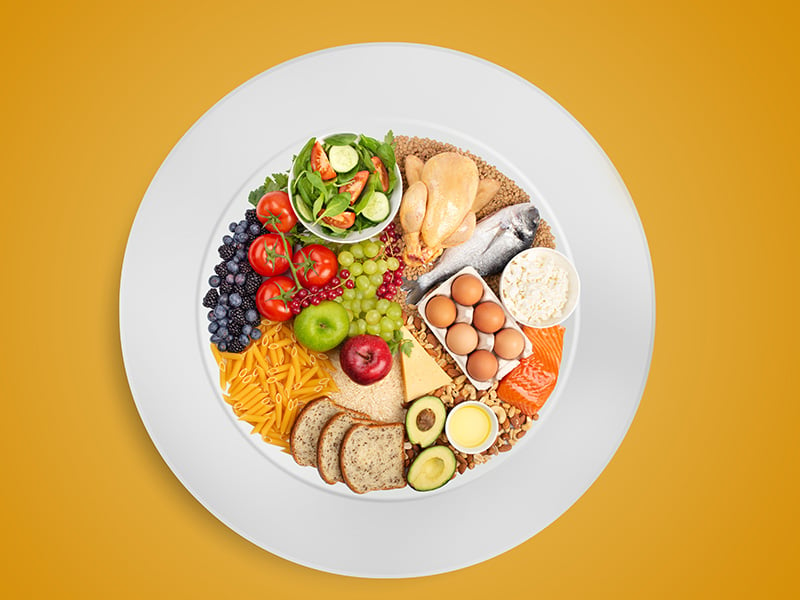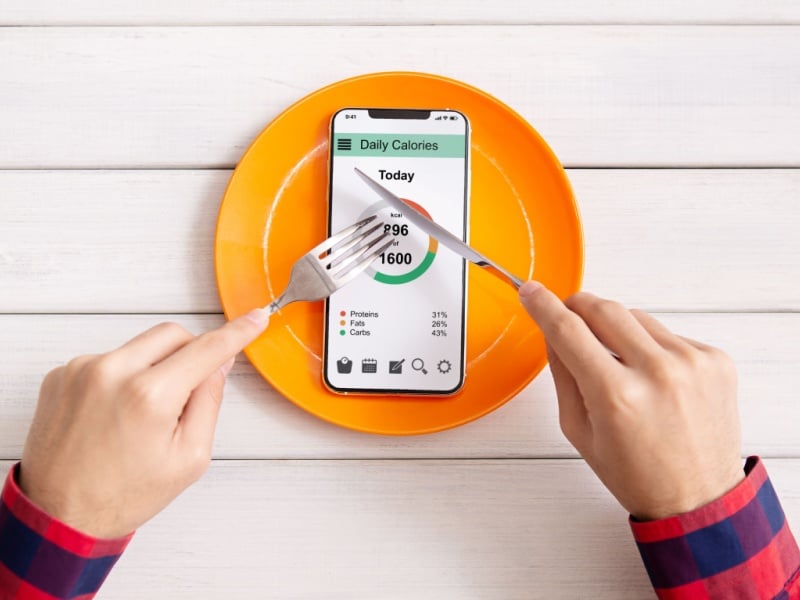“Find patterns through tracking. Record what you’re eating but also what’s going on at the times when you overeat. Try to track consistently for at least a couple of days, including weekdays and weekends, as different sorts of overeating might happen at different times.
There may be a time when you’re regularly overeating, such as on the train on the way home. It may be because you’re hungry and you’ve not eaten enough food or the right types of food. That means the trigger there is genuine hunger and the answer might be to make sure you eat enough or the right types of foods earlier in the day. But if you’re noticing that your pattern of overeating involves reaching for biscuits in front of the TV after a meal, then the trigger is likely to be something else.
Is it an emotional trigger? Is it boredom? Is it a response to stress? Or is it just habit? If you have always had a few biscuits while watching TV, then the act of watching TV will simply trigger the behaviour of reaching for biscuits – it’s a habit. Sometimes simple learned behaviour patterns explain why we keep doing things that aren’t helpful for us.
Once you know what the issue is you can start to break it down. If your trigger for eating is sitting in front of the TV, can you do something different that would make it difficult to eat? Develop a new habit for sitting in front of the TV, such as drawing, knitting or crocheting.
Want to get fit and healthy?
Sign up to our fortnightly Heart Matters newsletter to receive healthy recipes, new activity ideas, and expert tips for managing your health. Joining is free and takes two minutes.
I’d like to sign-up
If the trigger for eating is emotional, then work on dealing with the thing that’s triggering the emotion. For example, if you’re eating in response to stress because you’re putting things off, then do the thing you have been putting off. Most people forget it causes more stress to put something off than to knuckle down and do it.
If you’re eating because of worry or sadness, can you deal with those emotions in a different way? Use a thought diary to challenge those thoughts. Or do something physical or mentally engaging to distract you from these emotions. Make a list of non-food coping strategies and keep them on your phone or a notebook. Look at your list before you respond by eating. It’s not possible to prevent difficult emotions, but we can learn to respond differently.”
What to read next...









